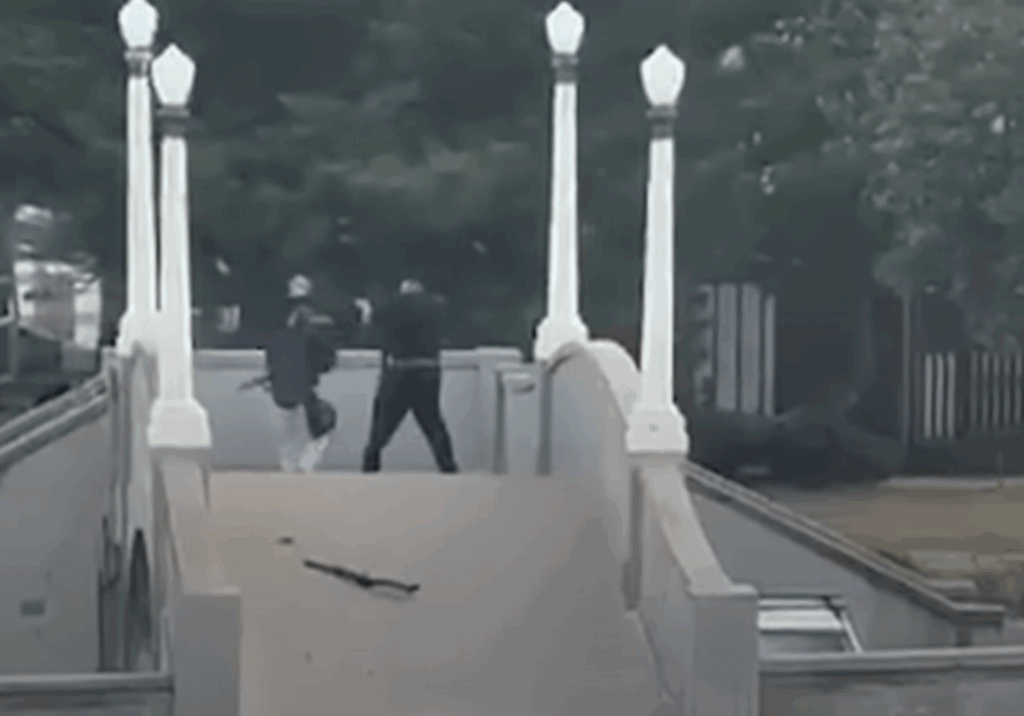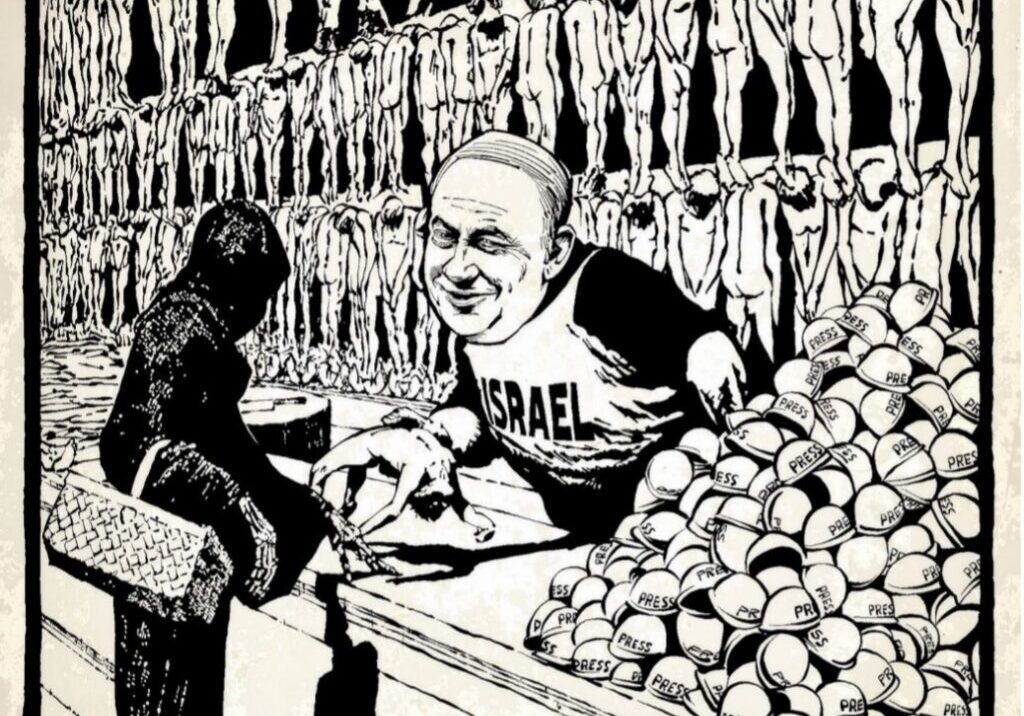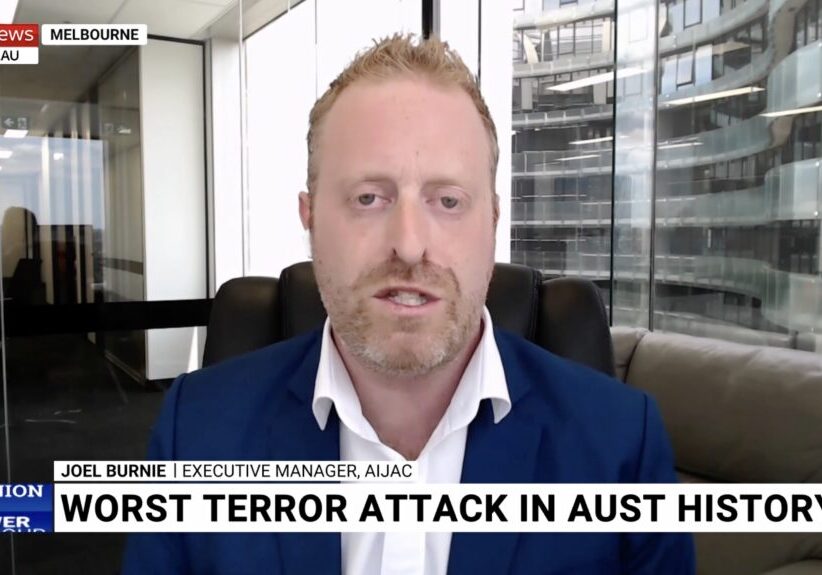Australia/Israel Review
Reality Bites
Feb 1, 2006 | External author
Hamas won’t change its stripes
By Barry Rubin
 |
| Hamas: intentions are well known |
A few months ago I was invited by an embassy to meet a visiting delegation to discuss European policies toward Hamas and Hezbollah.
“Before I decide,” I said, “tell me what you think about this issue.”
“Oh,” replied the diplomat, “we’ve already decided to deal with them.”
“If you already have made up your minds,” I answered, “why should I come to talk about it?”
Now, as the Financial Times says in a January 18 article, the members of the European Union are preparing to do business with Hamas despite the fact that it is on their list of banned terrorist groups. Their rationale is “that heavy-handed actions by the EU could prove counterproductive, pushing Hamas further from the political mainstream.”
Get it? In other words, if the EU is tough on Hamas it might become radical! Why it might even demand Israel’s destruction, dispatch suicide bombers, and be antisemitic! (Irony watch: Yes, that is what they are already doing.)
In fact, a lot of people have made up their minds based on some principle of inevitable moderation: If Hamas gains power, it will forget about terrorism and settle down to creating jobs and building a peaceful Palestinian state. And if this does not happen the naive of the world will ignore that fact.
In other words, every time Hamas stages a terrorist attack, calls Jews the offspring of pigs and monkeys, or demands Israel’s extinction, these naive people – Lenin called them “useful idiots” – will use this as proof that more must be done to persuade it to be moderate.
What’s that, you ask? Haven’t they learned anything from saying the same stuff about the PLO, Fatah and Yasser Arafat, and then seeing it didn’t happen?
Ah, but The New York Times has already answered that question in its Dec. 22, 2005 editorial:
“Letting Hamas run … is the lesser evil because any movement, once in power, is compelled to supplement its bluster with deeds. That’s what happened to the Palestine Liberation Organisation, which once seemed even less acceptable than Hamas.”
There are two bizarre notions in this statement. First, that it is absolutely certain that a movement in power must perform well rather than stir up people with crazy talk of revolution and destroying one’s enemies. It is hard to believe that in a world that has seen Communist and Nazi regimes — or those of Saddam, Islamist Iran, or the Taliban — that a sane person could say such things.
Second, to use the PLO as one’s example passes into the realm of satire. In fact, a dozen years after the PLO was formed, experience shows the exact opposite: a regime more interested in carrying on violent struggle than serving its people’s needs.
Indeed, the PLO stayed in power because it combined bluster with deeds of incitement, intransigence and terrorism. It was ousted now by those whose bluster is louder and whose deeds are more terrible.
Why should we believe that Hamas will do anything other than murdering thousands of people and installing a terrible dictatorship over Palestinians? Well, there’s always naive wishful thinking. Or in the Times’ words: “We can only hope that if Hamas wins a share of power, Palestinians will expect the same of it as they did of the PLO. If the Islamic militants persist in provoking Israeli incursions, roadblocks and assassinations, their welcome will soon wear thin.”
Yes, I hope so, too. But I sure wouldn’t risk the future of millions of people on that hope. Perhaps we should hope that Osama bin Laden comes to power in Saudi Arabia as the most effective way of defeating international terrorism.
Yet contrary to such expectations, rulers have used guns and ideology to keep their welcomes from wearing thin, as substitutes for high living standards and broad civil rights. This combination has long worked in the Middle East and continues to do so despite spectacular failures and rampant corruption.
Perhaps the Times’ editorialists don’t read their own newspaper. On January 8, Steven Erlanger reported the statement of Khaled Duzdar, a Palestinian analyst at the Israel-Palestine Center for Research and Information: “Anyone who thinks Hamas will become pragmatic if they win and it will be easier to settle the conflict is unrealistic. Hamas will never shift or change its charter or agenda.”
How do you prove that the assertions about a moderate Hamas are false? You can quote a tonne of Hamas statements and documents that say it will continue terrorism and never accept Israel. You can look at its daily violent acts. You can examine other precedents – including the PLO, Communist regimes and fascist parties – which prove moderation is not inevitable.
And you can do a sophisticated analysis to show that Hamas has become strong precisely because of its militancy and promises of total victory. You can suggest that extremists may actually believe their ideology, mean what they say, and cannot be bought off.
Is it really so hard to understand that a group that calls for genocide against Jews, extols terrorism and demands a Taliban-style regime for Palestinians is not about to become moderate? Apparently it is.
![]()
Barry Rubin is director of the Global Research in International Affairs (GLORIA) Center and editor of the Middle East Review of International Affairs (MERIA) Journal. His latest book is The Long War for Freedom: The Arab Struggle for Democracy in the Middle East (Wiley). © Ottawa Citizen, reprinted by permission, all rights reserved.
What is Hamas?
Hamas (a word meaning courage and bravery) is a radical Islamic organisation which became active in the early stages of the first Intifada, (1987-1990) operating primarily in the Gaza Strip but also in the West Bank. The Hamas has played a major role in violent fundamentalist subversion and radical terrorist operations against both Israelis and Arabs. In its initial period, the movement was headed primarily by people identified with the Muslim Brotherhood (MB) in the Territories.
Since the 1991 Gulf War, Hamas has become the leading perpetrator of terrorist activity throughout the Territories as well as inside Israel.
Hamas is the Arabic acronym for “The Islamic Resistance Movement” (Harakat al-Muqawamah al-Islamiyya). The organisational and ideological sources of Hamas can be found in the movement of the Muslim Brotherhood which was set up in the 1920s in Egypt and renewed and strengthened its activity in the 1960s and 1970s in the Arab world.
Hamas was successful in forming a social system which has provided an alternative to the social-political structure of the PLO. Hamas’ prestige is based on both its ideological and practical capabilities, as a movement whose contribution to the daily life of the Palestinians is not less than its contribution to the struggle against Israel and the occupation.
In August 1988 Hamas published the Islamic Covenant – its ideological credo, which presented its policy on all levels of the struggle, both against Israel and the national movement of the PLO. The Hamas Covenant challenged the PLO and its claim to be the sole legitimate representative of the Palestinian people, but it did not call for its elimination.
The means used by the Hamas to increase their influence in the street were the mosques. In the tradition of the Muslim Brotherhood, Sheikh Yassin built the Hamas as an underground movement.
The military apparatus was called Mujahidin. At first, the leadership did not strive to recruit large numbers of activists in the organisation. But a new generation of street leaders emerged out of the complex structural system built by the MB over the years. This generation, obedient and full of religious fervor has become the spearhead of the Islamic struggle.
The basic ideology of Hamas is founded primarily on the mainstream of the Muslim Brotherhood. However, there is a clear distinction in the order of priorities set forth by Hamas, as opposed to those of the MB. The MB viewed Jihad as a general duty and principle and it maintained that Islam would be established first throughout the Muslim world, only later to be followed by violent Jihad against Israel, in which Palestine, too, would be liberated. Hamas stresses Jihad as the sole and immediate means to solve the problem of Palestine.
Hamas defines the transition to the stage of Jihad “for the liberation of all of Palestine” as a personal religious duty incumbent upon every Muslim. At the same time, it utterly rejects any political arrangement that would entail the relinquishment of any part of Palestine, which for it is tantamount to a surrender of part of Islam. These positions are reflected in the Covenant, and of course in its activities.
The central goal of Hamas is the establishment of an Islamic state in all of Palestine. The immediate means to achieve this goal is the escalation of the armed struggle, and ultimately all-out Jihad, with the participation not only of Palestinian Muslims but of the entire Islamic world.
Source: The International Policy Institute for Counter-Terrorism, Herzliya.
Tags: Islamic Extremism






